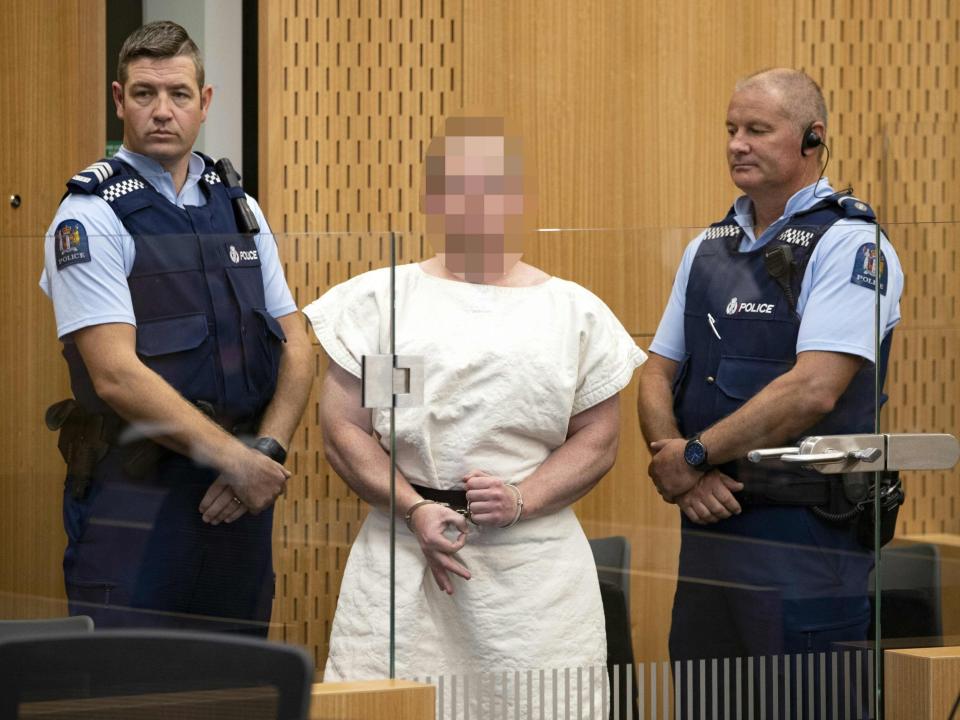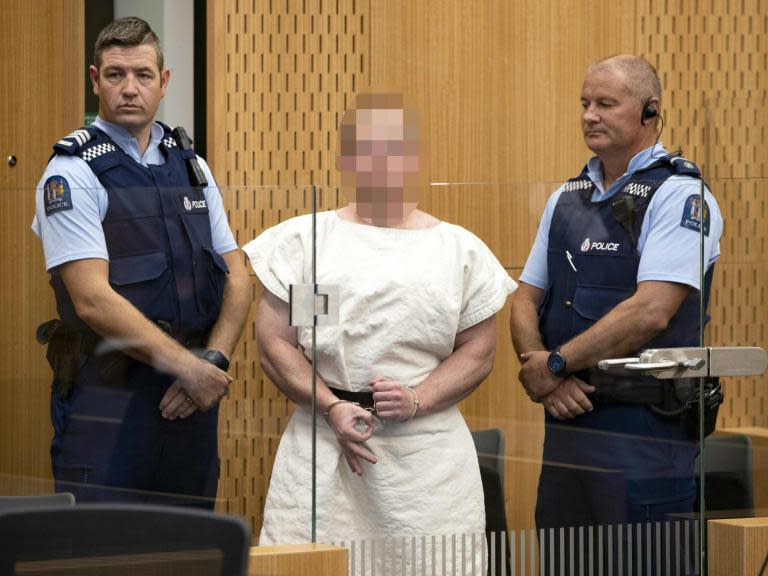We need to talk about why New Zealand shooting suspect Brenton Tarrant praised China in his manifesto
The now-detained 28-year-old suspect of the New Zealand mosque shooting, Brenton Tarrant from Australia, is accused of killing 50 people last week in the city of Christchurch. He allegedly filmed himself doing so, and right before that, widely distributed a rambling manifesto.
The suspect said he identifies most closely with what he sees as the Chinese government’s values, and that the Asian country’s strength comes from its being largely ethnically homogeneous. Specifically, the manifesto praises China’s “political and social values” and its being a “non-diversified country.” It should serve as an alarm for the way the Asian country is accused of treating its Uighur Muslim minority — because when the source of your praise is an alleged mass murderer, it’s clear to see that something has gone disturbingly wrong.
Tarrant did not elaborate; it’s also important to note that his manifesto, the size of a small novel, covers more ground than just China and is filled with insular slang. We might never know how much China inspired the massacre, if at all; how much the suspect understands the country; or the extent to which he believes his words.
But when a self-declared ethno-nationalist is shown on video attacking a nation’s Muslim minority, having praised the “non-diversified country” repeatedly accused of oppressing its own Muslim minority, it’s hard not to pay attention.
Rights groups say China conducts intense surveillance on Uighurs and holds up to one million people in camps, where torture is alleged. China denies that, saying alleged camps were “vocational training” centres, and that all it had been doing was responding to the region’s “ethnic separatism and violent terrorist criminal activities.”
In some quarters of the Chinese internet, some are already questioning whether their government’s actions had rippled outward. One has drawn a direct connection, even as the user blamed not China, but “foreign media disseminating that we're anti-Muslim.”
What’s perhaps worse than potentially inspiring a mass murder, however, is that even “PewDiePie,” a YouTube celebrity mentioned by the suspect, was quick to distance himself; the Chinese government said nothing about the manifesto, compounding the gravity of the praise itself.
Then there is the vagueness of China’s public comments. There was no mention of Muslims or Islam, much like the initial comments of US President Donald Trump and Canada’s Conservative leader Andrew Scheer. The two politicians have been accused of trying to appeal to their supporters who may be prejudiced against Muslims. A different version of that accusation can easily be levelled at China, where many believe their government’s story on the Uighur matter over that of the international community.
Indeed, China has also been accused of using the incident in domestic propaganda against New Zealand, with which it has tensions.
At the heart of China’s seeming indifference is its long-held view on diplomacy. The country rarely calls out alleged human rights abuses of others and expects others to reciprocate. It has said it would allow UN inspectors on the Uighur matter only if they avoid “interfering in domestic matters.”
That mentality might be somewhat justifiable when the current Chinese government was formed some 70 years ago, possessing a shabby economy and no UN seat. But China is a dominant international player now, and that carries the responsibility of setting a good example. Nothing it does is truly domestic anymore.
Tarrant’s praise is a reminder of that. It is a wakeup call, not just for China, but also for those who held their tongues on the Uighur matter, including many Muslim-majority nations that do business with the Asian country. It includes even Trump, who hasn’t taken any of the punitive actions on the matter Congress has been demanding.
China’s influence on Tarrant is certainly debatable. But sadly, the New Zealand shooting will not be the last of its kind, and Tarrant’s manifesto and his praise of China are easily found online.
If China does not publicly distance itself from the suspect’s manifesto, if it does not reconsider its stance on the Uighur matter and if the world does not step up pressure on it to do so, then one day, we may have another shooter with another manifesto that praises the Asian country more emphatically.
Ethan Lou is a Canadian writer

 Yahoo News
Yahoo News 

